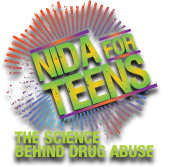
“Comorbidity” is a strange word, right? Well, at least for me it was. I have to admit it that it was the first scientific word I learned during my internship here at the National Institute on Drug Abuse (NIDA)–my Spanish accent still gives me a hard time pronouncing it. On the first day of my internship, I had to read and get acquainted with the extensive research that NIDA has done and published. Comorbidity was featured in NIDA’s Research Report Series.
So, what’s co-mor-bid-it-y? Here’s what NIDA scientists say: “When two disorders or illnesses occur in the same person, together or one after the other, they are called comorbid.” Having two disorders together can also cause them to interact in ways that make both of them worse.
So what does all of that really mean? It means that sometimes two illnesses go together. For example, people who have depression or other mental illness are often addicted to drugs as well, and vice versa, so that’s why scientists say depression is often “comorbid with” drug abuse.
NIDA scientists aren’t completely sure why people who are depressed are more likely to have a drug abuse problem. But here’s my take on it. Everyone has felt down before. If someone feels really bad, they may turn to drugs to “ease their mind.” Unfortunately, that can lead to a second disease–addiction to drugs–and then they feel even worse than they did before.
That’s what’s really bad about comorbid diseases: they can make each other worse! If someone is depressed, it’s harder to be motivated to quit using drugs. And if someone is using drugs, it can interfere with their treatment for depression.
What other diseases do you think could be comorbid? And why?
This is a guest SBB post from NIDA intern Giselle.





Comments
I wonder if sometimes people suffer from comorbidity because both illnesses have the same underlying cause. Like people that have depression and obesity. It's possible that they have low thyroid function which leads to both changes in brain neurochemicals and metabolism. Just thought I'd bring another point of view to the discussion.
i think people who smoke should just stop because they dont know what they are doing to their bodies
Add new comment